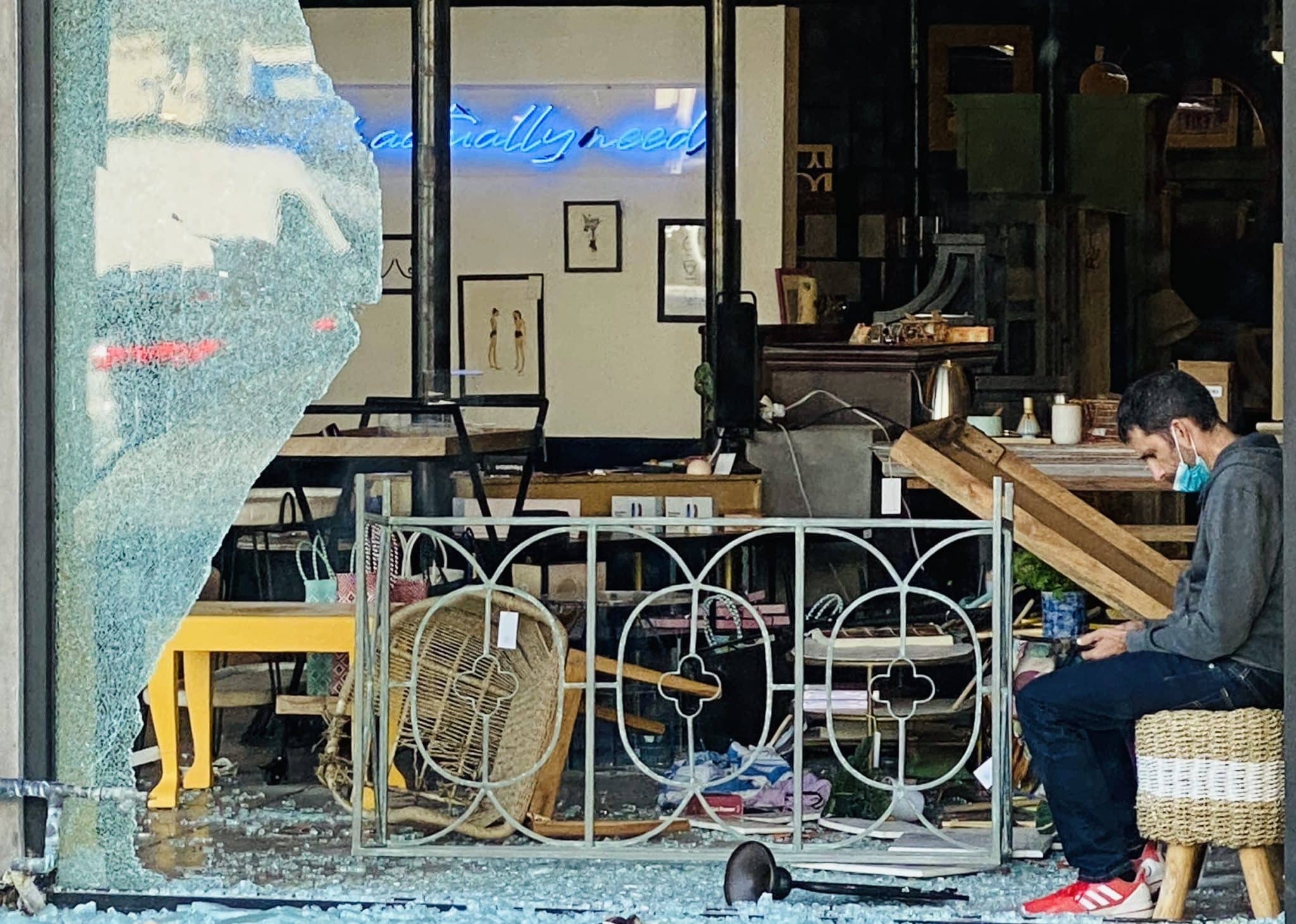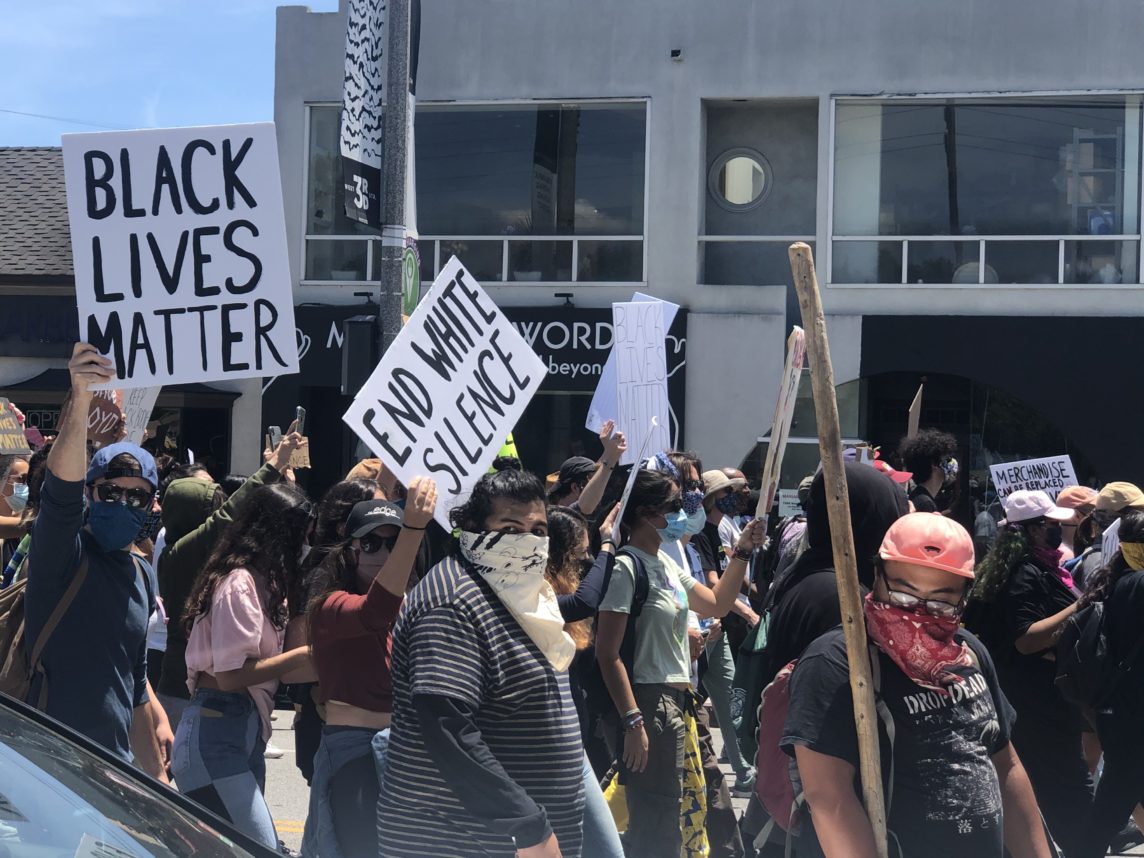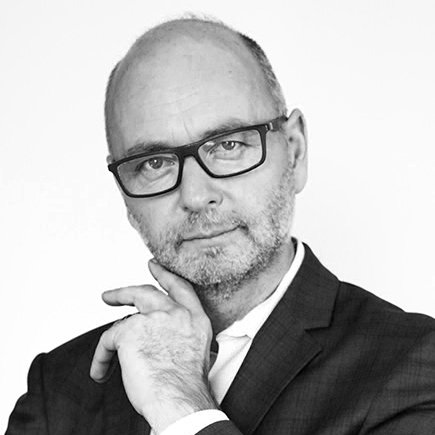 The aftermath of protests in Los Angeles May 30. Photo courtesy of Stephen Smith
The aftermath of protests in Los Angeles May 30. Photo courtesy of Stephen Smith My neighborhood is burning. Buildings were smoldering as I walked my dog on the morning of May 31. Shattered glass was on the sidewalk, graffiti on the store windows and on the shuls.
George Floyd’s death has awoken our country to a tragic reality: Too many black Americans still live in justified fear of racist violence. It’s a weight that, too often, is carried by too few. The rest of us live most of our lives at a comfortable distance from the injustice we know persists.
Today, we all feel a searing sense of shared anger. On May 30, tens of thousands gathered in Pan Pacific Park to protest — me included. The spirit of the protest gave me a cautious sense of hope. People of all ages, races and backgrounds stood shoulder-to-shoulder, donning their masks and risking infection to stand up against an even more insidious disease with an even higher body count: racism.
This is a moment to see past differences, to rediscover both our common humanity and our common fight against man’s ever-present inhumanity to man.
There are five people sheltering in my house in the burning Melrose district. A Christian parent, a Jewish parent, two Asian American kids and a house guest of African descent. We will not allow others’ narrow-minded views to divide us. This is a moment for solidarity between communities.
Too many black Americans still live in justified fear of racist violence.
Solidarity is not easy. It cannot be boiled down to a neat equation of historical suffering. When you deal every day with Holocaust survivors, as I do, you know that each group’s suffering is incomparable and unique. The racial violence in Minnesota surrounding the death of George Floyd taps into four centuries of pain that is uniquely felt within the black community.
And yet it’s a pain that many of the Holocaust survivors I am proud to consider friends can understand viscerally. People like Edith Eva Eger, who 75 years ago survived Gunskirchen concentration camp. Eger knows what it means to have to explain to young people that the world is more dangerous than we wish it was; the shadow of injustice longer than we might realize; and the specter of cruelty closer at hand than we might wish to acknowledge.
“Forgiveness cannot be realized without justice,” Eger told me as the protests grew, “It’s OK to be angry … there is no forgiveness without rage.”

She knows that generations of American Jews have their own need to reckon with persistent hate. Anti-Semitic killers who have attacked Jewish communities from Pittsburgh to Poway instilled in us the recognition: That could have been me. That could have been my father, my sibling, my partner, my friend, my community.
How many African American men and women must be thinking the same thing right now? How painful it must be for black communities to process not only the pain of George Floyd’s death, but to know that so many other victims came before George Floyd and too many will come after? How doubly crushing it must be to feel this pain in the wake of a pandemic that claimed such a disproportionate number of black lives.
One thing that Holocaust survivors often tell me is that loss can bring clarity about what really matters. My realization is that what matters today is being an ally and showing up for other communities as you would wish them to show up for you. Turning that common feeling into mutual support is painstaking, important work that must be sustained and cannot come and go with each crisis.
As Edith Eger reminded me during the increasing violence, “Love is not what you feel, it is what you do.”
Stephen D. Smith is Finci-Viterbi executive director of the USC Shoah Foundation.





















 More news and opinions than at a Shabbat dinner, right in your inbox.
More news and opinions than at a Shabbat dinner, right in your inbox.